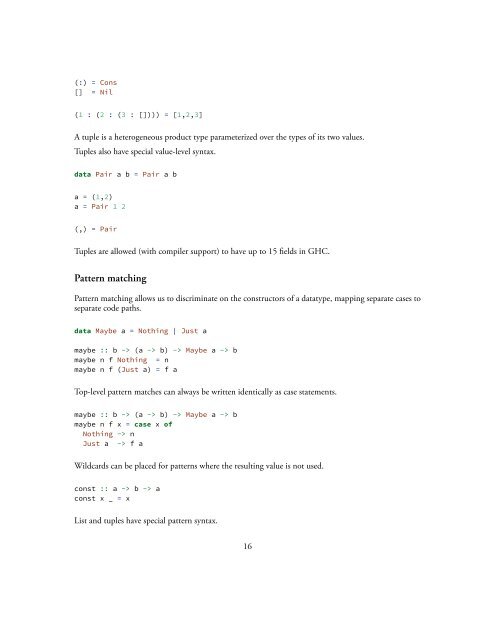You also want an ePaper? Increase the reach of your titles
YUMPU automatically turns print PDFs into web optimized ePapers that Google loves.
(:) = Cons<br />
[] = Nil<br />
(1 : (2 : (3 : []))) = [1,2,3]<br />
A tuple is a heterogeneous product type parameterized over the types of its two values.<br />
Tuples also have special value-level syntax.<br />
data Pair a b = Pair a b<br />
a = (1,2)<br />
a = Pair 1 2<br />
(,) = Pair<br />
Tuples are allowed (with compiler support) to have up to 15 fields in GHC.<br />
Pattern matching<br />
Pattern matching allows us to discriminate on the constructors of a datatype, mapping separate cases to<br />
separate code paths.<br />
data Maybe a = Nothing | Just a<br />
maybe :: b -> (a -> b) -> Maybe a -> b<br />
maybe n f Nothing = n<br />
maybe n f (Just a) = f a<br />
Top-level pattern matches can always be written identically as case statements.<br />
maybe :: b -> (a -> b) -> Maybe a -> b<br />
maybe n f x = case x of<br />
Nothing -> n<br />
Just a -> f a<br />
Wildcards can be placed for patterns where the resulting value is not used.<br />
const :: a -> b -> a<br />
const x _ = x<br />
List and tuples have special pattern syntax.<br />
16


